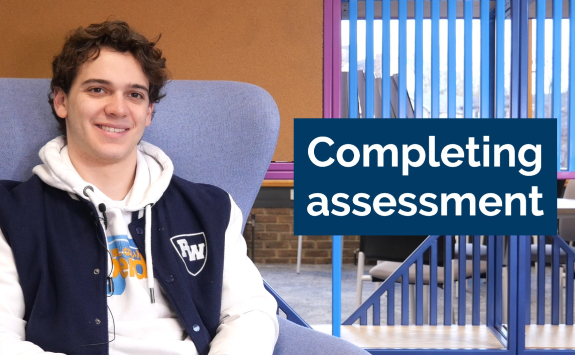Completing assessments
The University assesses students’ learning in various ways. This mixture of assessment styles is designed to develop and test a range of your skills.
Formative and summative assessments
There are two types of assessments at the University: formative and summative.
- Formative assessments do not count towards your final degree result. However, your tutors will provide feedback on your work, and you should use this to develop your learning.
- Summative assessments are formally graded, and they count towards your final degree result.
Always read the assessment documentation carefully so you know exactly what you need to do.
Across the University, most student assessment is individual. This means that you must complete most assessments alone, and not work on them with other students. Working with other students to complete individual assessments is not allowed, and it can have serious consequences for your studies.
However, there may also be times when your tutor tells you to work with other students to complete a group task such as a project or presentation. This is known as collaborative assessment.
You should complete assessments individually unless your tutor tells you to work with other students.
Studying with integrity
All students are expected to work honestly and fairly. This means following the criteria for individual assessments, as well as the University’s broader regulations.
When you use other scholars’ work, it is your responsibility to make sure you always reference it properly. This is vital to ensure that the distinction between your own work and other people’s work is always absolutely clear.
Using other people’s work without referencing it correctly is a kind of academic malpractice known as plagiarism. Some students plagiarise deliberately. However, very often students who plagiarise do so by accident.
The University uses sophisticated software to check students’ work for plagiarism. Tutors are also experienced at spotting plagiarism in students’ work. This means that if students plagiarise, it is very likely to be detected, and they would face a range of serious sanctions.
Don’t worry if you are unfamiliar with referencing. Nobody arrives at university understanding how to reference perfectly, so the University provides support to help you.
Artificial Intelligence and your learning
Artificial Intelligence (AI) is developing very rapidly, and is playing an increasingly important role in many aspects of our lives, including education. However, students should only use AI appropriately, ethically and responsibly for their academic work and assessments.

